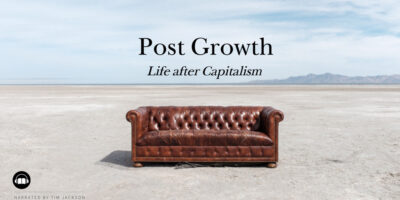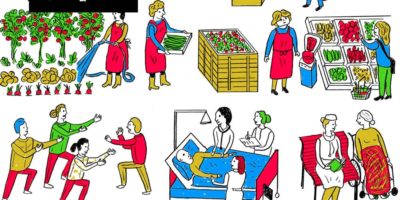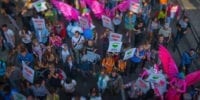The Utopian Spirit of Uncertainty
The the last edition of her blog series on Collecting Real Utopias, Malaika Cunningham draws together some of the themes and projects she has written about in this series and witnessed during her time as practice-based researcher in residence at Artsadmin.
Blog by MALAIKA CUNNINGHAM

This is my tenth and final blog for the real utopia series. This series has been a celebration of real utopian projects—with an explicit agenda of building solidarity between, awareness of, and the potential repetition of projects which challenge our system of exploitative capitalism. The term ‘real utopia’ was coined by sociologist Erik Olin Wright. He argued that rather than using utopias as the wholesale re-imagining of society at large, we can seek out and learn from smaller, more specific utopian endeavours which are already out there in the world. These projects represent fissures within consumer capitalism and by understanding, expanding, and supporting them, we can collectively oppose and challenge harmful social structures.
The real utopian projects Olin Wright is interested in—and those I have sought out and highlighted across this series—are those which disrupt consumer or extractive relationships between people, and between people and nature. They also open new routes for a participatory democracy, which can reframe us as citizens or change makers—not only consumers. This work is crucial for a transition towards a sustainable future. We need a healthy, participatory, and imaginative democracy if we are to unpick and address the complex, intersectional challenges we face today. This requires more opportunities for formal political participation (such as citizens assemblies, empowered local government, and an elected second chamber). However, perhaps most importantly, it requires a strong culture of democracy. A culture in which we have multiple, diverse opportunities for political discourse amongst friends and strangers; opportunities to hear stories and ideas which challenge our perceptions; access to playful spaces to dream up alternative futures; and an understanding of ourselves as agents of change. The arts have a clear role to play within building this culture of democracy, and in this final blog of the series, I will draw together some of the themes and projects I’ve written about in this series and witnessed during my time at Artsadmin, which I think demonstrate this role.
I have written elsewhere on the various capacities of performance practice in relation to building the participatory democracy we urgently need, in relation to the emotional, imaginative, and collective-building functions of performance practice. What I want to focus on here—in a somewhat doomed effort of bringing threads together—is on the political power of uncertainty and possibility, and how artistic practice might help us express that.
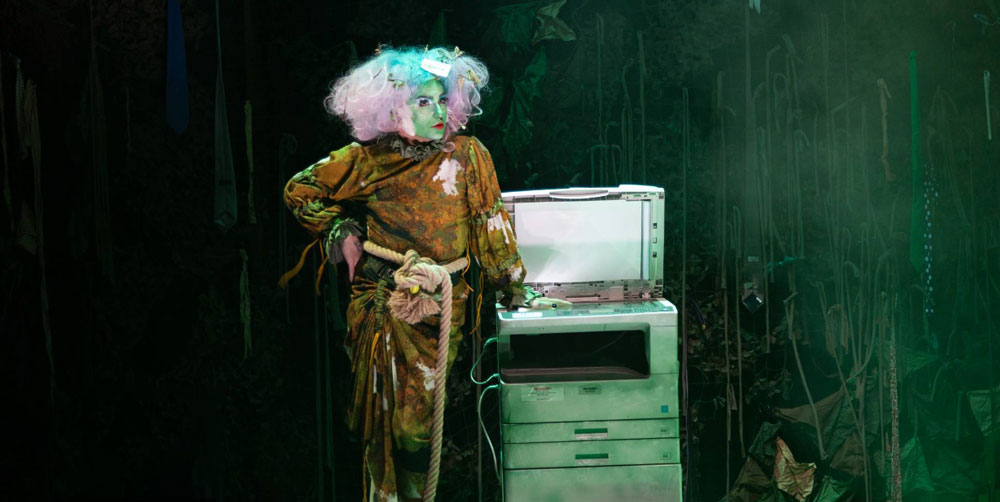
In her book Utopia in Performance, theatre theorist Jill Dolan writes “Performance’s simultaneity, its present-tenseness, uniquely suits it to probing the possibilities of utopia as a hopeful process that continually writes a different, better future” (2005, p. 13). The performance space sits outside our everyday lives—through stories, gestures, sound, design, voice, we enter another world with a different set of expectations, rules and possibilities. Dolan suggests that something people are perhaps looking for when they choose to go to performances is “moments of transformation that might let them reconsider the world outside the theatre” (p. 36). Perhaps it is too tall an order and overreaches the potential of performance. But I do think I have experienced these moments within performances—when I have re-entered the world outside slightly altered.
The swamp was overwhelming and, in that way, all-encompassing. Its messiness was honest. Its utopian energy was not in some containable political suggestion on how we may live, but in its total embrace of swampy complexity and uncertainty. Its utopian energy was an explicit expression that within rot, decay and sludge new worlds metabolise. We sat, stood, walked through that for an hour together, and left back into a messier world.
Tentacular Spectacular, by Oozing Gloop is an example of this. Late one night in October 2022 in Birmingham, I walked with hundreds of others through inflatable tunnels into a hazy, green swamp. In the swamp was glamour, horror, rants without pause, dancing, and anarchy. “These gender-non-conforming, trans & (by coincidence) neurodivergent drag artists invite you to fester in the problems that we have, whilst celebrating the solutions that are wrung from rot.” The swamp was overwhelming and, in that way, all-encompassing. Its messiness was honest. Its utopian energy was not in some containable political suggestion on how we may live, but in its total embrace of swampy complexity and uncertainty. Its utopian energy was an explicit expression that within rot, decay and sludge new worlds metabolise. We sat, stood, walked through that for an hour together, and left back into a messier world.
An invitation into the unknown, and the political power of this, was also at the core of Jennie Moran’s canteen residency Say Yes to Who or What Turns Up. This work was based on radical hospitality in which “both the host and guest have to collaborate on the explicit and implicit rules of engagement.” In this the sense of possibility and uncertainty is not only present for the audience or guests, but for the artists hosting the space. There is a necessary uncertainty of how things may go, a challenge to the host to relinquish control of what may happen.
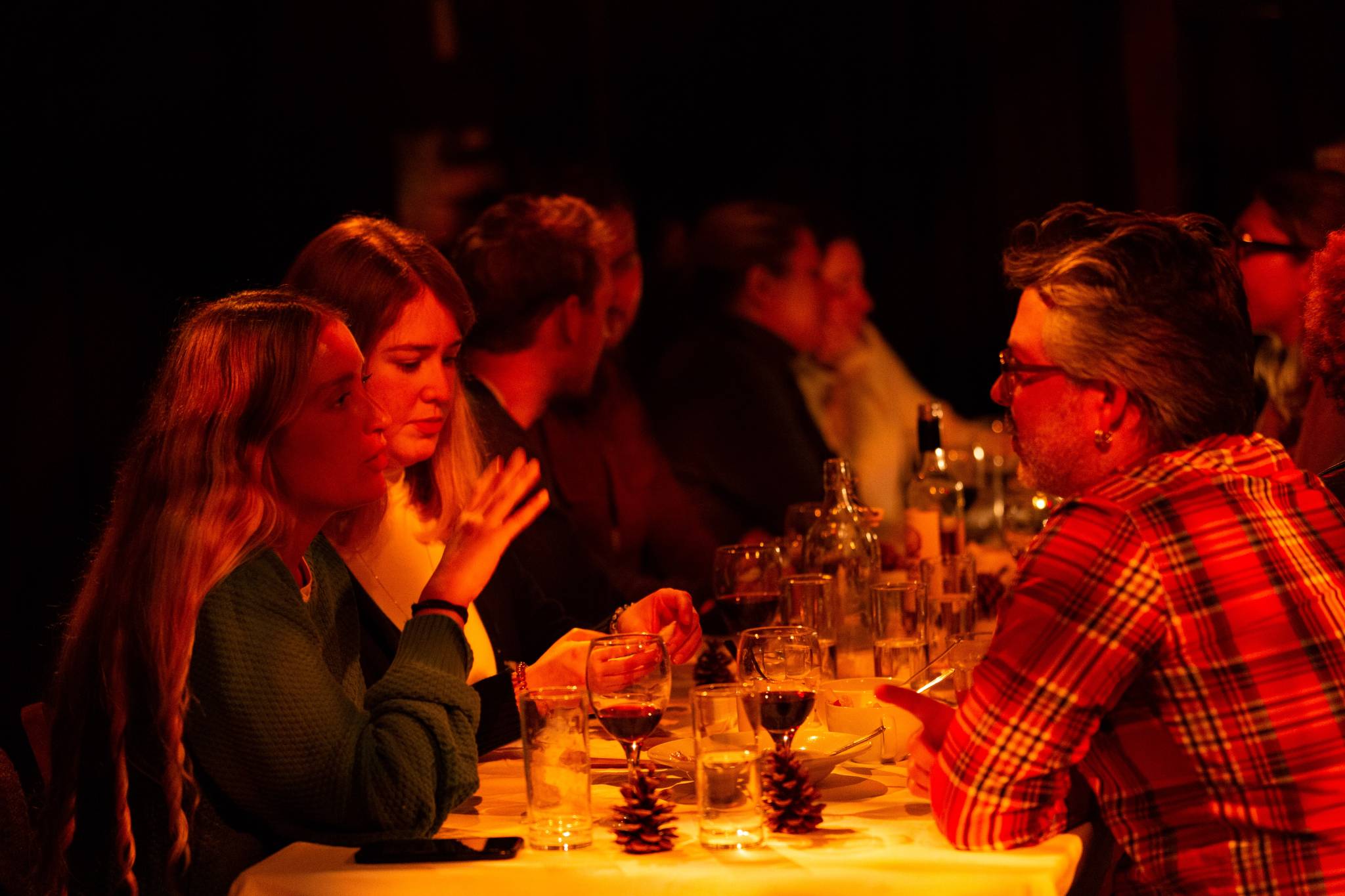
I have also been experimenting with these themes through my own work on the potluck series, one of which I co-hosted with Jennie. For me, this is a rehearsal for, as well as a form of, participatory democracy. It demands we hold our hosting power more lightly and invite others to take it from us. I have struggled with this uncertainty, and I have no doubt that rehearsing the act of giving up hosting power is an important, utopian intention for me.
I have struggled with a conclusion to this blog series. There is no neat ending to a utopian endeavour. Ruth Levitas discusses the notion of utopia as a useful method for social change. Utopia means ‘no place’. It is unreachable, the journey is endless. Yet it gives us something to reach towards—a vision of a future, which is necessarily rooted in the discontents we feel today. Its changeableness is powerful—it challenges us to look ahead, whilst not holding our visions too tightly. Artistic practice offers a unique opportunity to rehearse this – to collectively sit in the swamp, imagining other worlds.
This series is created in partnership with Arts Admin.

